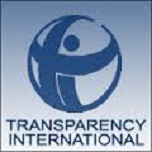The Secretary General at Transparency International Macedonia TI- Macedonia discusses challenges facing Macedonia resulting from corruption. The interview explores a new crowdsourcing effort, Transparency Watch, which empowers citizens to report corruption through digital means. Specific success stories for Transparency Watch and TI-Macedonia’s legal assistance center are also highlighted.
International Affairs Forum: What are the conditions in Macedonia regarding corruption issues currently?
Metodi Zajkov: Although there have been numerous efforts to tackle corruption in Macedonia, the problem persists to be a major issue in most public and social spheres in the country. Corruption Perception Index – CPI 2012 by Transparency International has positioned Macedonia at the 69th position within the 2012 ranking list of 176 countries, with 43 index points, based on a ranking from 100 to 1, where 100 is less corrupt. The Index confirms that corruption remains a major problem in the country. Even more, as tackling corruption is one of the key priorities for Macedonia in the EU pre-accession process, serious actions for prevention and suppression of corruption are needed in order for Macedonia to acquire further progress in the process of European integration.
According to the Global Corruption Barometer (GCB) 2012 by Transparency International, citizens claimed that there is a big problem in general corruption in the public sector in Macedonia. On a scale of one to five, where 1 means not a problem at all and 5 means a very serious problem, with an average score of 4.1, which indicates a very serious problem with the public sector institutions in Macedonia. In the latest GCB 2012, 82 % of the citizens in Macedonia respond positively that they are willing to report incident of corruption. The survey is based on the experience in life, not on perception, which makes the score more relevance for further consideration. With corruption being such a problem for Macedonian citizens, any failure to produce significant progress in fighting it undermines trust in institutions, perpetuates apathy, and entrenches the lack of accountability that harbours the most serious risks for people’s rights
Furthermore, in the Human Rights Report for Macedonia (2012) provided by US Department of State Reports, it was emphasized that “during the year there were credible claims that the government interfered in high-profile cases involving abuse of office or misuse of official position to coerce government officials and party members or to intimidate key opposition leaders.” The most critical human rights problem was the government’s failure to address significant levels of government corruption and police impunity. Anti-corruption experts and the civil sector also criticized the Anti-Corruption Commission for lack of political will and capacity to verify declarations’ veracity and lack of ability to sanction noncompliant officials effectively. Beyond the political interference, favoritism, inefficiency, and corruption also slowed the delivery of justice. With corruption being such a problem for Macedonian citizens, any failure to produce significant progress in fighting it undermines trust in institutions, perpetuates apathy, and entrenches the lack of accountability that harbours the most serious risks for people’s rights.
As combating corruption is one of the key priorities for Macedonia in the EU pre-accession process, serious actions for preventing and suppressing corruption are needed in order for Macedonia to acquire further progress for integration into the Union. This imposes serious pressure on the Macedonian Government for a more effective implementation of anticorruption policy. As shown in the last report of the European Union, Macedonia’s progress on anti-corruption has been acknowledged but emphasis was placed on the need for continuous efforts.
However, frequently, government-only anti-corruption initiatives have failed to deliver sustainable change in the lives of people. Therefore any successful anti-corruption initiative must be grounded in citizens’ experiences and engage constructively with government to bring about real changes.
IA-Forum: What purpose/objective does your crowdsourcing project, Transparency-Watch, seek to address?
Mr. Zajkov: The overall purpose of Transparency Watch is to enhance the quality of democratic governance by enabling citizens to participate in the fight against corruption by using new electronic tools and, at the same time, to effectively hold their government accountable and contribute to systemic improvements. Read the rest of this interview in the latest issue of International Affairs Forum ( www.tandfonline.com/doi/full/10.1080/23258020.2013.830911)


